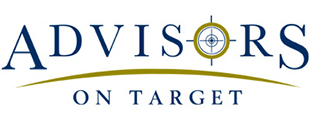Managing cash is one of the most important tasks for any business owner and even if it’s not as glamorous as sales and marketing it is the job that makes sure the bills keep getting paid on time.
The cash position of a business at any time is easy to determine if you know just three figures – the cash in the bank, the cash that’s going to be received by the business, and the cash that has to be paid out.
It sounds simple, and it is, yet it’s amazing how many business owners don’t have a grasp of these three cash measurements. Whether you have a financial officer, or handle the accounts for your business personally, there are things you should be doing to keep on top of your cash position.
Know what’s in the bank at all times Banks can prepare statements at any frequency you request, and online banking is even easier and tells you instantly how much is in your account. Because this is the only source of funds you can instantly draw upon, you should be aware of your bank balance at all times.
Watch your receivables It’s not enough to know how much is owed your business – you also need to know when it’s coming in and if any payments are running overdue. This means ensuring that your debtors know when their payments are due, and having a credit policy that is firmly administered.
Know what you owe The other side of the coin is keeping track of what you owe and when payments have to be made. You might be paying bills too early and could hang onto cash an extra week or two without upsetting suppliers. You also need to be sure you’re taking advantage of any discounts on offer.
Monitor your cash position Just knowing the bulk figures of your bank account, receivables and payables isn’t enough to give you the full picture of your cash position though. You also need to incorporate the dates when receivables will arrive and when payments have to be made. This will help eliminate the possibility of being in a position where you have bills to pay while still nervously waiting for the cash to come in.
There are three other things to do that will help you get more benefit from your cash.
Put spare cash to work If you’re lucky enough to have surplus funds or are building up a strategic cash reserve put this money into a short-term interest bearing account. There’s nothing more wasteful than money just sitting in a non-interest bearing account.
Restrict your banking Don’t have too many accounts, and don’t deal with more than one bank. This makes it easier to know how much cash is on hand and puts you in a more favorable position with a financial institution.
Get expert financial advice Many small businesses have someone who ‘does the books’ and an accountant who sees the accounts once a year for the purpose of preparing a tax return. Unfortunately, this exposes the business to cash flow problems that can arise during the year. At least on a quarterly basis, have your business’ cash flow position analyzed by an accountant who can use their experience to spot developing problems in cash flow before they become too serious.
Cash management is an important responsibility of business ownership. It isn’t all that complicated but it does require regular attention and monitoring using cash flow forecasts.
Information in this article is sourced from RAN ONE, Inc




